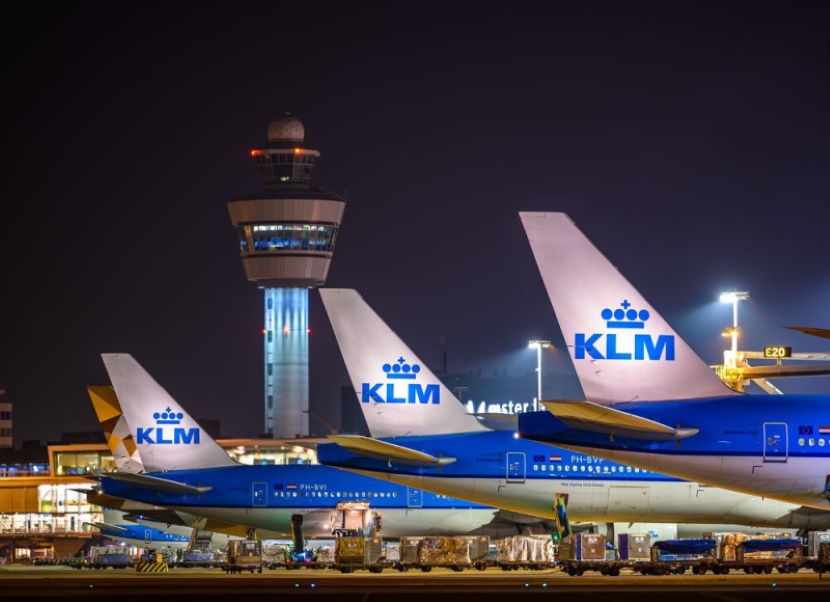Published on August 8, 2025 |
By: TTW News Desk

In a troubling development, the Air France-KLM Group has disclosed a data breach affecting its customer base. The airline conglomerate acknowledged that personal information of passengers utilizing its subsidiaries, Air France and KLM Royal Dutch Airlines, has been compromised due to an incident involving a third-party customer service platform. This breach has prompted alarm among customers and cybersecurity specialists alike due to its association with sophisticated cyber tactics, which heighten the risks for identity theft and phishing scams.
Detection of Unusual Activities on External Platform
The breach was identified following unusual activities on an external platform employed for customer service functions. This platform, likely linked to Salesforce, is frequently used across various sectors, including aviation giants. As soon as the breach was traced back to this external vendor, IT security teams from both the airline and the partner were promptly engaged to mitigate potential fallout.
Customer data including full names and contact details, along with Flying Blue loyalty program membership information, were among the exposed data. Fortunately, the airlines confirmed that highly sensitive data such as passwords, travel details, and payment information were not compromised. Nevertheless, passengers remain at risk, as their public information can still be misused for social engineering attacks.
Vulnerability to Phishing Scams: What Passengers Should Be Aware Of
While no critical data has been leaked, the exposed customer information leaves individuals susceptible to phishing scams and identity theft. Cybercriminals often utilize such compromised information to execute targeted social engineering schemes, impersonating the airline or other trusted entities to extract sensitive details from passengers.
In light of the breach, KLM and Air France are actively informing affected customers, urging them to maintain heightened vigilance against suspicious calls, emails, or messages. These phishing attempts may aim to trick individuals into disclosing personal information that could be used for malicious purposes.
The airlines have specifically advised caution against unsolicited communications requesting personal information or directing recipients to suspect websites. Passengers are encouraged to be alert for generic communications, including any that contain spelling errors or other indicators of fraud.
Potential Involvement of Third-Party Vendor: ShinyHunters Group Suspected
This breach exhibits characteristics associated with the cybercriminal group known as ShinyHunters, notorious for targeting Salesforce customers. ShinyHunters is known for exploiting weaknesses in third-party vendors and customer service platforms to access sensitive data for malicious intent. Similar attacks involving well-known firms, including tech names like Google and Cisco, as well as other airlines such as Qantas, have been attributed to this group.
Though the Air France-KLM Group has not definitively linked the breach to Salesforce, available evidence strongly suggests involvement. Salesforce has, however, emphasized that their platform itself was not compromised and that these breaches stem from social engineering rather than vulnerabilities within their systems.
Response to the Breach: Airline’s Mitigation and Security Enhancements
In illumination of this breach, both Air France and KLM have responded swiftly to secure their operations. They have notified relevant authorities, including the French National Commission on Informatics and Liberty (CNIL) and the Dutch Data Protection Authority (DPA), as part of their compliance with data protection laws such as GDPR.
Additionally, the airlines affirmed that internal systems were not affected and are implementing enhanced security measures to thwart future breaches. These measures aim to bolster safeguards for third-party platforms and increase the security of customer data handling practices, marking a meaningful step in fortifying their cybersecurity approaches.
Broader Implications: The Necessity for Enhanced Cybersecurity in Airlines
This incident underscores a troubling trend in the airline industry regarding the susceptibility of third-party platforms to cyberattacks. As airlines increasingly depend on external vendors for customer service management, they inadvertently open new avenues for cybercrime. This is not an anomaly but a powerful reminder of the acute need for continuous investment in cybersecurity measures to protect sensitive passenger data.
The Air France-KLM breach reflects broader concerns in the aviation industry, which has faced similar breaches affecting the data of customers. With airlines handling vast amounts of sensitive information daily, it is critical for the industry to prioritize robust security frameworks to uphold data integrity and prevent similar breaches in the future.
What Affected Passengers Should Do Moving Forward
As investigations continue, passengers who suspect their data may have been compromised are urged to remain vigilant against potential phishing efforts. KLM and Air France are providing guidance to help customers identify fraudulent communications and strengthen personal security measures against scams.
Travelers are particularly cautioned against unsolicited emails or phone calls allegedly from the airline and are advised to verify such communications through official channels. Furthermore, taking steps like enabling two-factor authentication on relevant accounts can provide an added layer of security.
Conclusion
The Air France-KLM data breach serves as a critical warning about the evolving cybersecurity threats faced by the aviation sector. Although sensitive data exposure was not a direct outcome of this breach, the vulnerabilities it highlights related to phishing and social engineering must not be overlooked. As airlines increasingly rely on third-party vendors, it becomes paramount to enhance cybersecurity protocols, safeguarding the personal information of millions of travelers.